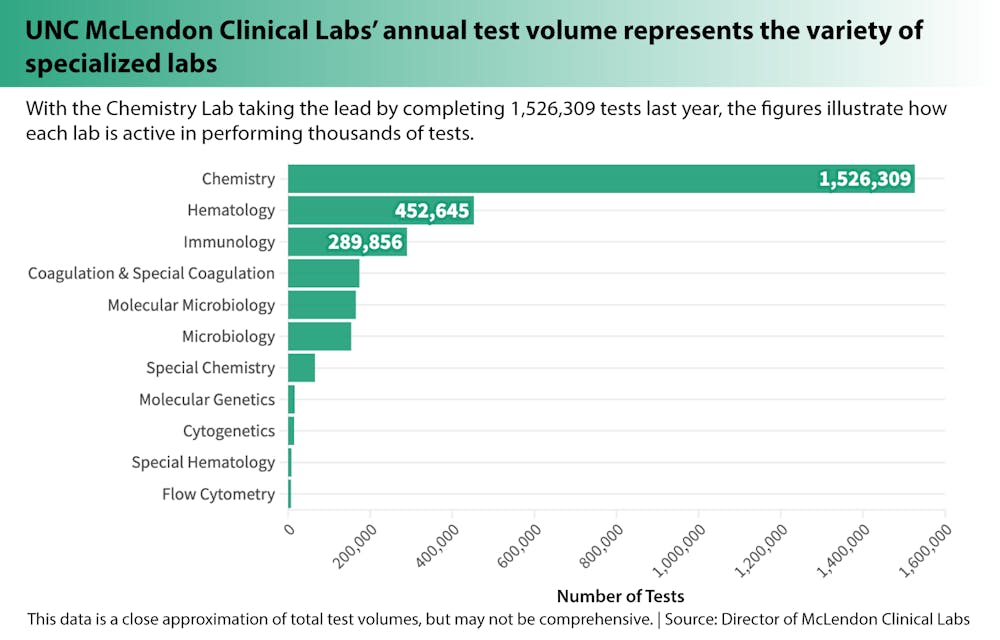UNC McLendon Clinical Laboratories perform millions of clinical tests annually. Its largest specialized division, chemistry, tests over 1,500,000 samples annually. The faculty, fellows and residents of the Department of Pathology and Laboratory Medicine review and process these tests, completing potentially life-saving work every day.
For Dr. Jonathan Galeotti, his interest in the field of lab medicine stemmed from a fascination with life at the cellular level. As a hematopathologist at the UNC School of Medicine, he studies diseases that affect blood cells.
“We’re all exposed to similar things in the environment, so why do some people get cancer and some people don’t?” Galeotti said. “I loved the fact that in hematopathology, it’s often very clear. These patients are normal – they’re walking around like you and I, just living their lives – and then something happens. I can point to that exact thing in hematopathology.”
Em Price, a post-sophomore fellow in pathology and laboratory medicine, found that the work he performed in the lab was an ideal combination of his multiple distinct interests in the field of medicine.
“I was interested in surgery and infectious disease, which are two very different things,” Price said. “One was a little more hands-on. I really liked anatomy and I wanted to work with anatomy. I wanted to use my hands, and infectious disease was more my research and academic side. I figured pathology was a lot of both, and it ended up being absolutely the perfect combination.”
Price said pathology really wasn't on the front page of every journal and that surgery as a field was seen as a little more "glamorous.”
“I’m so glad that I discovered (lab work) — it’s a hidden gem,” he said.
Essential duties in the department involve running quality checks on each sample; studying organic matter like blood, bone marrow and tissue for markers of disease and determining an accurate diagnosis for each patient. One particularly critical task is DNA fingerprinting, which allows doctors to identify whether a marrow or stem cell transplant was successful in a patient.



